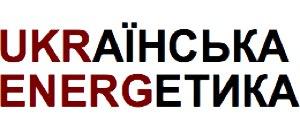

DiXi Group helped to prepare the Energy Investment Risk Assessment for Ukraine
The Energy Charter Secretariat published the 2019 Energy Investment Risk Assessment (EIRA) report. The materials for this report concerning Ukraine were prepared with the assistance from DiXi Group expert Taras Tkachuk. The report was recently presented at a conference in Brussels.
The EIRA report assesses specific risks which affect energy investments and which could be mitigated by adjusting the policy, legislative and regulatory frameworks.
“The overall risk level is low. Ukraine provides attractive conditions for investors and is working in the right direction. Attention should be given to strengthening the country’s institutional governance,” the report’s general conclusion states. “Discrimination between foreign and domestic investors continues to be the lowest risk, with a slight decrease vis-à-vis last year. Breach of State obligations remains unchanged. The risk of unpredictable policy and regulatory change has gone down compared to 2018.”
The report includes the following indicators: foresight of policy and regulatory change, management of decision making processes, regulatory environment and investment conditions, rule of law. Besides the analysis of situation, this document describes the areas for improvement required for each indicator.
In particular, the report contains recommendations for the Ukrainian government to prepare an action plan for implementing the Energy Strategy for the period of 2021-2035. This will allow seamless implementation of the country’s short- and long-term actions and ensure that goals are effectively met. In addition, the monitoring authorities should be independent of the government. Functional and substantive independence of monitoring frameworks is better guaranteed when monitoring entities are self-funded and have sufficient technical and skilled human resources to support them.
As for the management of decision making processes, a one-stop shop can be established and empowered to grant approvals and licenses for energy investment activities. As stated in the report, a unified procedure for administrative decisions, such as for investment project screening, must be created and discretionary choices avoided to the extent possible.
The document stresses that further structural changes should be implemented to increase the institutional, functional and financial independence of the NEURC. In particular, budgetary approval from the Committee on State Budget of the Parliament should be granted within the time frame stipulated in the law (one month). All decisions of the NEURC should be published on time to ensure they are effected without delay.
The EIRA report helps governments identify gaps in the policy and regulation and make the energy sector more attractive for foreign investments. It also gives businesses, investors and financial institutions an insight into the energy policy and regulatory environment of the assessed countries.
The number of participating countries in the 2019 report has increased to 34. Ukraine ratified the Energy Charter Treaty in 1998.








